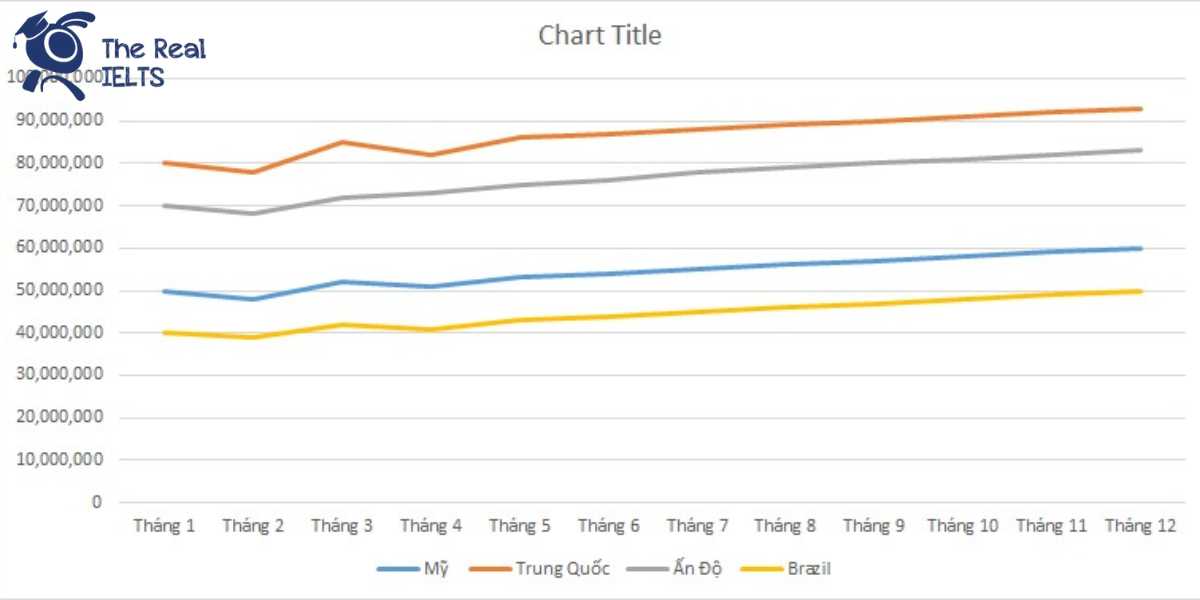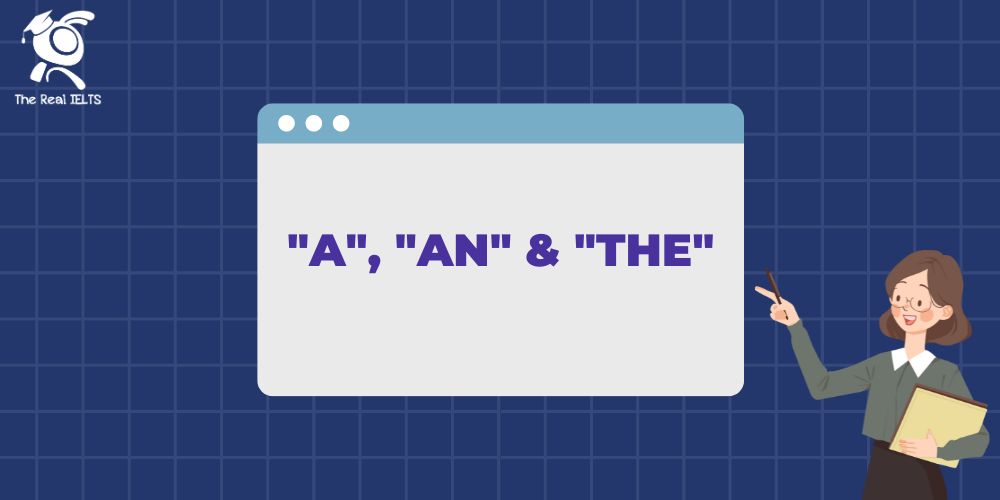Đề thi IELTS Reading có tiêu đề “The Influence of Social Media on Modern Communication”
Nhớ đọc thêm các bài luyện thi IELTS nhé.
IELTS Reading: The Influence of Social Media on Modern Communication
In recent years, the advent of social media has significantly transformed the landscape of communication, influencing not just the way individuals interact with each other but also the dynamics of societal engagement and information dissemination. The pervasive influence of social media platforms such as Facebook, Twitter, Instagram, and LinkedIn has reshaped traditional modes of communication, creating new paradigms for both personal and professional interactions.
One of the most profound changes brought about by social media is the shift from face-to-face communication to digital interaction. Social media has allowed people to connect with others across the globe, breaking down geographical barriers that once restricted communication. This global connectivity has fostered a sense of immediacy and intimacy in communication, allowing users to share their thoughts, experiences, and opinions with a wide audience in real-time. As a result, the frequency and speed of communication have increased dramatically, enabling users to maintain relationships that might have otherwise dwindled due to distance or time constraints.
Furthermore, social media has democratized the flow of information, giving individuals a platform to voice their opinions and share content with a broad audience. Unlike traditional media, where information was disseminated through centralized channels such as newspapers, television, and radio, social media allows for a decentralized flow of information. This has led to the rise of citizen journalism, where individuals report news and events directly from their own perspectives, often providing real-time updates that traditional media outlets may miss. However, this democratization of information also brings challenges, such as the spread of misinformation and the difficulty in discerning credible sources.
The impact of social media on communication is not limited to personal interactions but extends to professional settings as well. Social media has become an essential tool for businesses and organizations to engage with their audience, build brand awareness, and promote products and services. Platforms like LinkedIn have revolutionized professional networking, allowing individuals to connect with potential employers, collaborators, and clients in ways that were not possible before. Moreover, companies now use social media to communicate directly with their customers, addressing inquiries, complaints, and feedback in real-time, which has enhanced customer service and brand loyalty.
However, the influence of social media on communication is not without its drawbacks. The immediacy and accessibility of social media have led to concerns about the quality of communication. The brevity of messages on platforms like Twitter, where users are limited to a certain number of characters, can lead to superficial or incomplete communication. Additionally, the constant bombardment of information can overwhelm users, leading to information overload and a diminished ability to focus on meaningful interactions.
Another significant issue is the impact of social media on privacy. As people increasingly share personal information online, there is a growing concern about the security and privacy of this data. Social media platforms often collect vast amounts of data on their users, which can be used for targeted advertising or, in some cases, can be compromised by malicious actors. This has raised important questions about data ownership, privacy rights, and the ethical responsibilities of social media companies.
Moreover, the use of social media has been linked to various psychological effects, including anxiety, depression, and loneliness. The constant comparison with others, exposure to idealized portrayals of life, and the pressure to present a curated version of oneself can contribute to negative self-perception and mental health issues. While social media can provide a sense of connection, it can also exacerbate feelings of isolation, as online interactions may lack the depth and emotional resonance of face-to-face communication.
In addition, social media has played a role in shaping public discourse and political communication. The ability to reach large audiences quickly has made social media a powerful tool for political campaigns, social movements, and public debates. However, this has also led to the rise of echo chambers, where users are exposed primarily to information that reinforces their existing beliefs, potentially leading to increased polarization and a fragmented public sphere.
In conclusion, the influence of social media on modern communication is multifaceted, offering both opportunities and challenges. It has revolutionized the way people interact, share information, and engage with the world, but it has also introduced new complexities in terms of privacy, information quality, and mental health. As social media continues to evolve, it will be crucial for individuals and society to navigate these challenges thoughtfully, ensuring that the benefits of social media are maximized while mitigating its potential drawbacks.
Đề bài thi IELTS Reading
Multiple Choice Questions
- What is one of the significant changes brought about by social media?
- A) Decreased communication speed
- B) Increased face-to-face communication
- C) Global connectivity
- D) Limited access to information
- How has social media impacted the flow of information?
- A) Centralized it through traditional media
- B) Decentralized it, allowing citizen journalism
- C) Restricted the sharing of information
- D) Reduced the spread of misinformation
- Which social media platform is specifically mentioned as revolutionizing professional networking?
- A) Facebook
- B) Instagram
- C) LinkedIn
- D) Twitter
- What is a potential drawback of communication on social media platforms like Twitter?
- A) Too much privacy
- B) Overly detailed communication
- C) Superficial or incomplete communication
- D) Lack of real-time updates
- How do businesses benefit from social media according to the text?
- A) By reducing customer service interactions
- B) By avoiding direct communication with customers
- C) By enhancing brand awareness and engagement
- D) By limiting their audience reach
- What concern is raised regarding privacy in social media?
- A) Social media doesn’t collect user data
- B) User data is always secure
- C) The ownership of user data
- D) The inability to share personal information
- What psychological effect is NOT mentioned as a consequence of social media use?
- A) Anxiety
- B) Happiness
- C) Depression
- D) Loneliness
- What role has social media played in political communication?
- A) It has reduced political campaigns
- B) It has been ineffective for social movements
- C) It has facilitated political polarization
- D) It has removed the need for public debates
True/False/Not Given
- Social media has completely replaced traditional forms of communication.
- True
- False
- Not Given
- Social media allows users to maintain relationships with people they have never met in person.
- True
- False
- Not Given
- The text states that social media platforms like LinkedIn are not useful for professional networking.
- True
- False
- Not Given
- Social media has led to a decrease in the number of people experiencing mental health issues.
- True
- False
- Not Given
- The author mentions that social media companies have a clear policy on data ownership.
- True
- False
- Not Given
- Citizen journalism often misses real-time updates compared to traditional media.
- True
- False
- Not Given
- The text states that social media’s impact on privacy is not a concern for most users.
- True
- False
- Not Given
Yes/No/Not Given
- Does the author believe that social media has improved global communication?
- Yes
- No
- Not Given
- Does the text suggest that social media has entirely negative effects on mental health?
- Yes
- No
- Not Given
- Does the author think that the decentralization of information is beneficial?
- Yes
- No
- Not Given
- Is it the author’s opinion that businesses should avoid using social media?
- Yes
- No
- Not Given
- Does the text imply that the author is concerned about the rise of echo chambers in social media?
- Yes
- No
- Not Given
Matching Information
- Match the following impacts of social media with their corresponding descriptions in the text:
- Global connectivity
- Information democratization
- Professional networking
- Psychological effects
A) Platforms like LinkedIn revolutionize career interactions.
B) Anxiety, depression, and loneliness are linked to social media.
C) Breaking down geographical barriers for communication.
D) Allows for citizen journalism and decentralized information flow.
Matching Headings
- Match the headings to the appropriate paragraphs:
- “The Rise of Citizen Journalism”
- “Social Media’s Impact on Privacy”
- “Professional Networking in the Digital Age”
- “The Psychological Consequences of Social Media”
A) Paragraph on how social media allows anyone to share news.
B) Paragraph discussing the mental health issues associated with social media.
C) Paragraph describing the privacy concerns of user data on social media.
D) Paragraph on how LinkedIn and similar platforms have changed networking.
Matching Features
- Match the features to their respective social media platforms:
A) Known for character-limited posts.
B) Commonly used for professional networking.
C) Focuses on image-sharing and visual content.
D) Popular for personal updates and social interaction.
Matching Sentence Endings
- Match the beginnings of the sentences with the correct endings:
- Social media has led to…
- The decentralization of information means…
- Professional networking has been transformed by…
- Privacy concerns have arisen due to…
A) social media collecting large amounts of user data.
B) the rise of platforms like LinkedIn.
C) increased global connectivity.
D) that anyone can share their opinions widely.
Sentence Completion
- Social media has increased the speed and __________ of communication, allowing users to maintain long-distance relationships.
- __________ has become a significant concern due to the vast amounts of personal data shared on social media.
- The rise of __________ allows individuals to report news and events from their own perspectives.
- Platforms like __________ have changed the way professionals network and seek job opportunities.
- The __________ of social media interactions can sometimes lead to superficial communication.
Summary Completion
- Social media has had a profound impact on modern communication by __________ geographical barriers and enabling real-time, __________ communication. It has also democratized the flow of information, giving rise to __________ journalism. However, the rapid exchange of information has also led to challenges, such as the spread of __________ and privacy concerns. Additionally, the psychological effects of social media, including __________, have become a growing concern.
Table Completion
31-35. Complete the table with information from the text:
| Aspect of Social Media | Impact on Communication |
|---|---|
| Global Connectivity | (31) __________________ |
| Information Flow | (32) __________________ |
| Professional Networking | (33) __________________ |
| Privacy Concerns | (34) __________________ |
| Psychological Effects | (35) __________________ |
Diagram Label Completion
36-40. Complete the diagram with labels that describe the various aspects of social media’s impact as mentioned in the text.
- (36) __________ (Global Connectivity)
- (37) __________ (Information Democratization)
- (38) __________ (Professional Networking)
- (39) __________ (Privacy Concerns)
- (40) __________ (Psychological Effects)
Đáp án bài thi IELTS Reading
Multiple Choice Questions
- C) Global connectivity
- B) Decentralized it, allowing citizen journalism
- C) LinkedIn
- C) Superficial or incomplete communication
- C) By enhancing brand awareness and engagement
- C) The ownership of user data
- B) Happiness
- C) It has facilitated political polarization
True/False/Not Given
- False – Social media has not completely replaced traditional forms of communication.
- True – Social media allows users to maintain relationships with people they have never met in person.
- False – The text states that LinkedIn is useful for professional networking.
- False – Social media has led to an increase, not decrease, in mental health issues.
- Not Given – The text does not explicitly state whether social media companies have a clear policy on data ownership.
- False – Citizen journalism often provides real-time updates, unlike traditional media.
- False – The text suggests that privacy concerns are a significant issue for users.
Yes/No/Not Given
- Yes – The author believes that social media has improved global communication.
- No – The text does not suggest that social media has entirely negative effects on mental health.
- Yes – The author thinks that the decentralization of information is beneficial.
- No – The author does not think that businesses should avoid using social media.
- Yes – The text implies that the author is concerned about the rise of echo chambers in social media.
Matching Information
- C) Breaking down geographical barriers for communication.
- D) Allows for citizen journalism and decentralized information flow.
- A) Platforms like LinkedIn revolutionize career interactions.
- B) Anxiety, depression, and loneliness are linked to social media.
Matching Headings
- A) Paragraph on how social media allows anyone to share news.
- C) Paragraph discussing the privacy concerns of user data on social media.
- D) Paragraph on how LinkedIn and similar platforms have changed networking.
- B) Paragraph discussing the mental health issues associated with social media.
Matching Features
- D) Popular for personal updates and social interaction.
- A) Known for character-limited posts.
- B) Commonly used for professional networking.
- C) Focuses on image-sharing and visual content.
Matching Sentence Endings
- C) increased global connectivity.
- D) that anyone can share their opinions widely.
- B) the rise of platforms like LinkedIn.
- A) social media collecting large amounts of user data.
Sentence Completion
- efficiency
- Privacy
- citizen journalism
- brevity
Summary Completion
- removing
- instantaneous
- citizen
- misinformation
- anxiety, depression, and loneliness
Table Completion
- Breaking down geographical barriers
- Decentralization and democratization
- Revolutionizing career networking
- User data concerns
- Anxiety, depression, and loneliness
Diagram Label Completion
- Global Connectivity
- Information Democratization
- Professional Networking
- Privacy Concerns
- Psychological Effects
Luyện tập bài khác ở bài viết:”100 bài luyện IELTS Reading 2024 – 2025“















